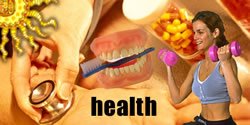Yoga and Ayurveda in Addiction Treatment
By Catherine O’Neill
[Clinical Ayurvedic and Pancha Karma Specialist, Certified Sivananda Yoga Instructor.]
Our opportunity for genuine spiritual fulfillment is strengthened when we weave together  the ancient wisdom of Yoga and Ayurveda with the practical tools of recovery programs; together they offer us a truly empowering personal program of recovery.
the ancient wisdom of Yoga and Ayurveda with the practical tools of recovery programs; together they offer us a truly empowering personal program of recovery.
Ayurveda views the each individual as a unique expression of the five elements, refined into 3 essential doshas (Vata – air, Pitta – fire, and Kapha – earth/water). Knowledge of your Ayurvedic constitution can be of great benefit in recognizing your addictive behaviors and the needs and vulnerabilities that underlie them. Vata types are prone to addiction and they are the most  easily and severely damaged by them. They usually become addicted to substances that reduce their pain, worry, anxiety and insecurity. Pitta people adopt addictions that keep them at the high level of intensity and activity that they associate with success. Pitta people tend to be self-righteous and have a hard time recovering unless they are convinced it is in their best interest. Kapha people may use substances to stimulate them as they tend toward lethargy and often fall into food addiction because of poor eating habits. These individuals have the strongest systems and can take more abuse from bad habits. Consequently, they have the hardest time recovering.
easily and severely damaged by them. They usually become addicted to substances that reduce their pain, worry, anxiety and insecurity. Pitta people adopt addictions that keep them at the high level of intensity and activity that they associate with success. Pitta people tend to be self-righteous and have a hard time recovering unless they are convinced it is in their best interest. Kapha people may use substances to stimulate them as they tend toward lethargy and often fall into food addiction because of poor eating habits. These individuals have the strongest systems and can take more abuse from bad habits. Consequently, they have the hardest time recovering.
By understanding your Ayurvedic constitution, you can learn the areas in which you may become vulnerable when you are under stress – and you can determine what kinds of activities and changes in your lifestyle can best help you restore balance in mind and body. Ayurveda offers simple and practical methods to maintain health and prevent disease through the use of such tools as proper daily and seasonal routines. It revitalizes the body’s systems and boosts the immune system giving you a strong foundation in health to face the challenges and stresses of daily life without resorting/relapsing into old addictive behaviors.
“All addictions are part of a psychological pattern of dependency. This must be addressed through efforts to contact the true Self that is independent and transcends environmental influences.” - Dr David Frawley in Ayurvedic Healing. Affirmation of, and identification with the Self removes all cravings, sense of lack, self-esteem problems and self-defeating behaviors.
These Yogic paths towards Self-realization are revealed through the practice of the 5 principles of Yoga as summarized by great Yoga Master Swami Vishnu devananda:
1. Asana practice;
2. Pranayama (breathing exercises);
3. Relaxation;
4. Proper Diet; and
5. Positive Thinking and Meditation.
ASANA PRACTICE
Yogic physical exercises are designed to develop the body, broaden the mental faculties and the spiritual capacities. Yoga exercises improve the health of the spine and aid the proper function of the internal organs. They also work on the nervous system and the endocrine system (glands and hormones) therefore restoring health and balance to the entire system. It is important to note that asana practice denotes moderate, conscious, gentle exercises promoting calmness and helping to move and balance the prana (vital life force), thus breaking the stagnation and imbalances caused by drug and alcohol abuse.
PRANAYAMA (Breathing Exercises)
Breathing techniques, like deep abdominal breathing, help to balance and calm the mind - increasing mental clarity and alertness and can be practiced at any time. Most people take shallow breaths into the chest alone, deep breathing can deeply nourish and calm the central nervous system and is an essential tool in overcoming any addiction.
RELAXATION
Yogic relaxation practices are useful in reducing mental tension and anxiety. Due to the over-stimulation of the body through drugs and alcohol often there are problems with nervous energy and insomnia. Simple techniques like Savasana (corpse pose) with auto-suggestion relaxation, (tensing then relaxing each part of the body progressively from toes to head), mentally repeating “I am relaxing my toes, feet, legs, back etc”, can be taught and practiced for 10-15 minutes daily to calm and stabilize the body and mind. The ability to consciously relax the body and mind is a great practical way to increase self-esteem and self-confidence.
POSTIVE THINKING AND MEDITATION
To overcome any disorder of the mind it is important to understand how the mind works. For those who have problems with addiction, basically the mind is out of control. Addiction is the nature of the mind – it attaches to a thought and then has the tendency to repeat it over and over again – its mechanics are habitual. Addiction is simply a negative habit/association – the mind associates that alcohol/drugs are a solution and habitually jumps to this wrong conclusion – it gets into a loop and it is difficult to get out. Positive thinking and meditation offer techniques to slow the mind down so its habit can be changed – the initial aim is to increase the lapsed time between the craving, habitual thought and the action. These mental techniques help to straighten out the mind, bringing simplicity and clarity by replacing negative thinking and emotions with opposite positive thoughts and attitudes.
The mind of the alcoholic/drug abuser is addictive, obsessive, compulsive and dysfunctional. They need to relearn things with people who are already healthy, who know where happiness lies and who are strong. They need to have the courage to face the problem and this is easier when they are with those who have courage, truth, love and compassion. Unconditional support is required - people who will encourage them on their new path.
These practices, done on a daily basis, a little at a time are the necessary strategy to bring back wholeness and health and combat addiction which is a symptom of unwholenessness. The variety of practices helps the person to have choices in daily life whilst maintaining healthy boundaries, promoting progress in self control, positive attitude and lifestyle.
Combining the 5 Points of Yoga, the Yogic psychology of how to deal with the mind and the Yogic philosophy of the Self with the practice of the principles of the 12 steps alongside an Ayurvedic lifestyle offers a sure path from self-destruction to Self-realization - one day at a time.
This powerful combination can be experienced in depth at “Yoga of Recovery” retreats offered at various locations worldwide. The retreat comprises yoga asana, Pranayama and relaxation classes, positive thinking techniques and meditation instruction, Ayurveda workshops and daily Open 12 Step meetings.
[Extracted from HealthNewsDigest.com


No comments:
Post a Comment